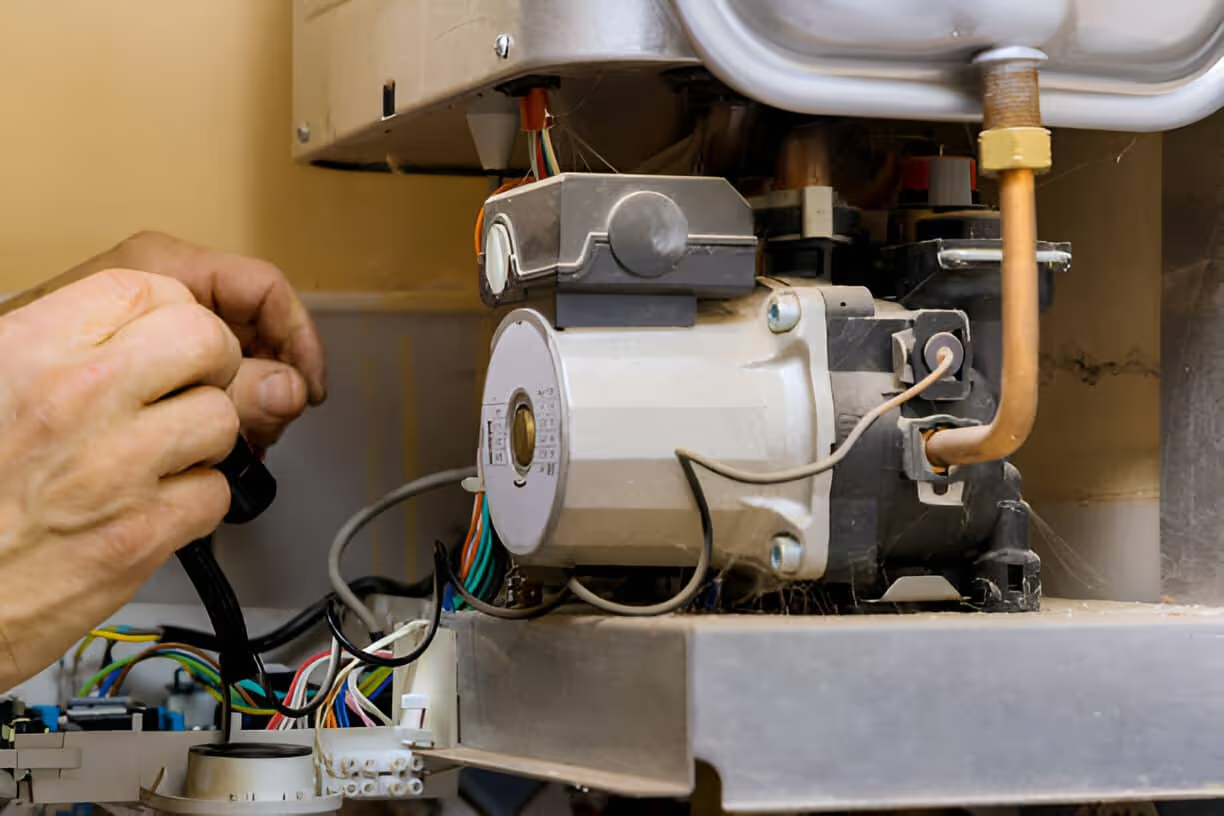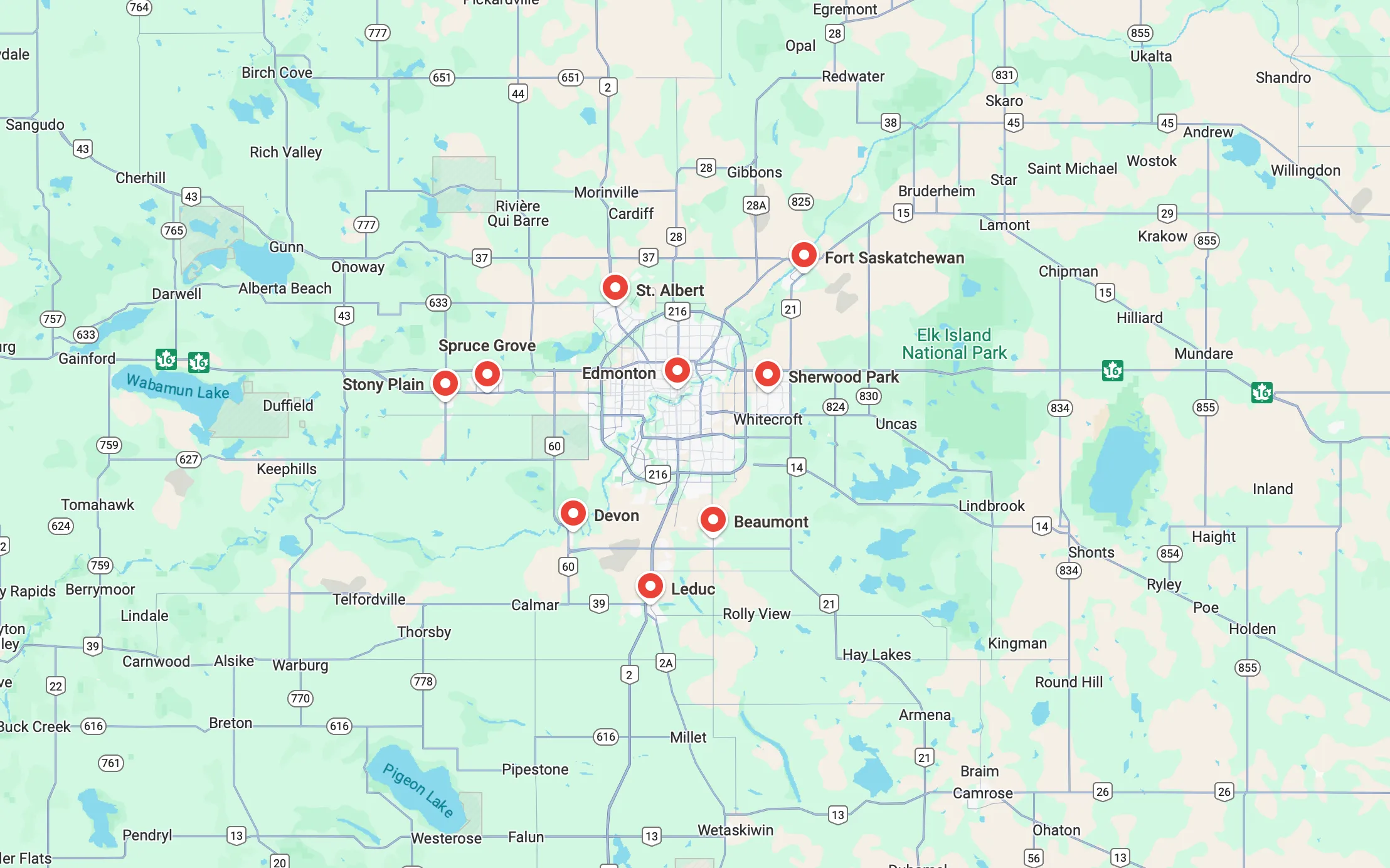Heating Replacement in Devon, AB
Heating replacement in Devon, AB explains the full-system upgrade process from initial site assessment and load calculations to equipment selection, removal, and installation. It covers common reasons for replacement, signs of aging, and the advantages of high-efficiency furnaces, heat pumps, dual-fuel systems, and boilers. The guide outlines installation timelines, rebates and financing, warranty coverage, and practical maintenance tips to maximize comfort, safety, and energy savings throughout Alberta's cold season. It emphasizes professional sizing, proper installation, and ongoing tune-ups for long-term reliability.

Heating Replacement in Devon, AB
Upgrading your whole-home heating system is one of the most effective ways to improve year-round comfort and reduce energy bills-especially in Devon, AB where long, cold winters and wide temperature swings put heavy demand on home heating. This page explains the full-system heating replacement process: from site assessment and load calculations to equipment comparisons, removal and disposal, realistic installation timelines, available rebates and financing, warranty coverage, and the practical benefits of upgrading for comfort and efficiency.
Why consider heating replacement in Devon, AB
- Devon winters are long and often dip well below freezing; an aging or undersized system can mean rising fuel costs, uneven warmth, and increased risk of breakdowns during peak cold.
- Older furnaces and boilers lose efficiency over time; replacing them with modern, high-efficiency equipment delivers measurable savings and reliable performance throughout the heating season.
- Upgrading also improves indoor air quality and safety-modern systems have better combustion controls, sealed heat exchangers, and timely carbon monoxide protections.
Common heating problems that signal replacement is due
- Frequent repairs or repeated component failures
- Furnace or boiler older than 15–20 years with declining efficiency
- Uneven heating across rooms, or rooms that never reach set temperature
- Rising energy bills despite normal use in cold months
- Unsafe combustion indicators: yellow pilot light, soot, or confirmed heat-exchanger issues
- Systems that cannot integrate with smart thermostats, zoning, or heat-pump hybrid arrangements
Types of whole-system replacements commonly chosen in Devon
- High-efficiency natural gas furnaces (AFUE 95%+): familiar option in Alberta homes, reliable in extreme cold, available as modulating or two-stage to improve comfort.
- Cold-climate air-source heat pumps (ASHP): modern inverter-driven models provide heating at lower outdoor temperatures and can drastically cut energy use when combined with proper insulation or as part of a hybrid system.
- Dual-fuel (hybrid) systems: pairing a heat pump with a gas furnace gives efficient heat most of the year, switching to gas only when temperatures drop below the heat pump’s optimal range.
- Condensing boilers or high-efficiency hydronic systems: for homes with radiant heat or baseboard hot-water systems, newer condensing boilers offer big efficiency gains.
- Ductless mini-splits: practical for additions, older homes without ductwork, or zoning specific areas to improve overall system efficiency.
Site assessment and load calculations (what to expect)
A professional replacement starts with a detailed site assessment and accurate load calculation:
- Walk-through inspection of the home, existing distribution (ducts or radiators), combustion venting, and indoor air quality systems.
- Manual J heating load calculation to size the new equipment based on insulation levels, window types, airtightness, occupancy, and local climate data for Devon, AB.
- Ductwork or piping evaluation: identifying leaks, returns, sizing issues, register balances, and potential need for modifications or zoning.
- Recommendations for complementary upgrades: programmable or smart thermostats, ventilation improvements, insulation or air-sealing opportunities that maximize the new system’s performance.
Comparing energy-efficient equipment options
Considerations when choosing equipment:
- Efficiency rating: AFUE for furnaces and seasonal HSPF/SEER for heat pumps—higher numbers mean lower operating costs.
- Modulating or variable-speed operation: provides steady temperatures, lower noise, and better efficiency versus single-stage units.
- Cold-climate performance: for Devon’s winters, select heat pumps rated for lower ambient temperatures or use a dual-fuel approach.
- Compatibility with existing distribution: some systems require duct modifications; hydronic systems need compatible boilers and controls.
- Long-term operating cost estimates: compare upfront price plus projected annual fuel/electric costs over system life to find best value.
Safe removal and environmentally responsible disposal
- Refrigerant recovery: if a heat pump or AC is being removed, refrigerant must be recovered and handled per environmental regulations.
- Hazardous material checks: older units may contain materials requiring special handling; technicians will identify and mitigate any risks.
- Recycling and disposal: metal, copper, and other components are recycled where possible; disposal manifests and documentation can be provided for transparency.
- Site cleanup: removal includes sealing openings, reinstalling vents or covers, and restoring any disturbed finishes to leave the work area clean.
Typical installation process and timelines
- Pre-install planning (1–7 days): finalizing load calculations, equipment selection, and scheduling deliveries.
- Equipment delivery (1–3 days): ordering and receiving the chosen system and necessary components.
- Installation day(s) (1–3 days for typical single-family homes): removal of old unit, duct or piping modifications, new equipment installation, combustion and safety checks, thermostat setup, and system startup.
- Post-install tuning and testing (same day or next day): duct balancing, airflow measurements, combustion analysis (for gas equipment), and demonstration of system controls.
- Follow-up visit (1–4 weeks later): optional commissioning check to verify performance during actual cold conditions and to make minor adjustments.
Weather, supply availability, required permits, and extent of duct or piping modifications can extend timelines—seasonal demand in fall can also affect lead times for popular models.
Rebates, incentives, and financing options
- Homeowners in Devon may qualify for federal and provincial energy-efficiency incentives, manufacturer rebates, and local utility programs that support heat pump and high-efficiency furnace installations.
- Typical incentive types include partial equipment rebates, installation incentive, or interest-free/low-interest financing for eligible upgrades.
- Documentation and application support: professionals can help identify program eligibility, collect necessary performance specifications, and supply required installation paperwork.
- Financing: many contractors and third-party lenders offer payment plans or financing to spread the investment over months or years; compare terms, interest rates, and total cost before committing.
Warranty coverage and what it means for you
- Manufacturer warranties: covering major components (heat exchanger, compressor) for a specified term-register your equipment to activate full coverage.
- Labour and installation warranty: look for a written labour warranty covering workmanship and installation-related issues for a set period after completion.
- Extended warranties and maintenance plans: optional plans may cover annual tune-ups and certain repairs to protect performance and residual value.
- Read exclusions: warranty coverage typically requires regular maintenance and proper operation; keep records of service to preserve coverage.
Benefits of upgrading and maintenance recommendations
- Lower energy bills: modern systems frequently operate more efficiently, reducing fuel or electricity use through the long Devon heating season.
- Improved comfort: consistent temperatures, quieter operation, and better humidity control.
- Increased reliability and safety: newer equipment reduces risk of mid-winter breakdowns and improves combustion safety.
- Higher home value and marketability: energy-efficient systems are attractive to buyers and can be a selling point.
- Maintenance tips to protect your investment:
- Schedule annual professional inspections and tune-ups.
- Change or clean filters regularly and ensure registers are unobstructed.
- Keep outdoor equipment clear of snow and debris during winter months.
- Address duct leaks and insulate accessible duct runs to preserve efficiency.
Upgrading your heating system in Devon, AB is a strategic investment in comfort, safety, and long-term energy savings. A properly sized, well-installed system paired with regular maintenance and available incentives delivers dependable warmth through Alberta’s coldest months while lowering operating costs and enhancing home comfort.
Customer Testimonials
Hear from satisfied customers who trust us for reliable HVAC and plumbing service across Edmonton
















Customer Testimonials
Hear from satisfied customers who trust us for reliable HVAC and plumbing service across Wichita.
Service Areas


